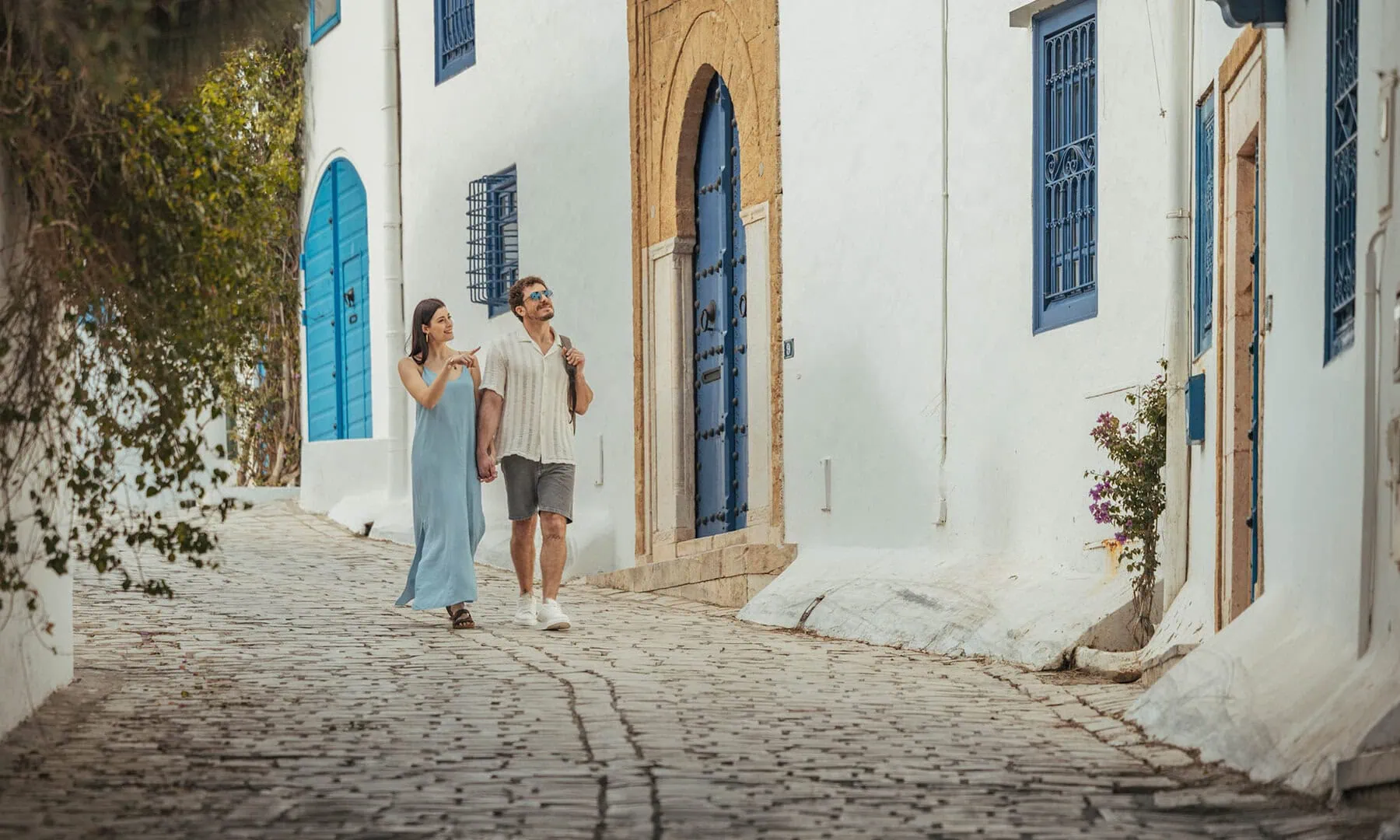
Nestled between Europe and Africa, Tunisia is increasingly being recognized not just as a destination to visit—but as a place to live. With a low cost of living, welcoming communities, and a rich cultural and natural landscape, Tunisia invites you to slow down, breathe deeply, and live fully.
Tunisia offers one of the lowest costs of living in the Mediterranean region. From fresh fruits and vegetables at local markets to renting a beachfront apartment, life here is both affordable and fulfilling. You can enjoy:
Rent in safe, scenic areas starting as low as €200/month
Delicious, locally sourced food
Inexpensive public transport and services
Tunisia enjoys more than 300 days of sunshine per year. Its geography is diverse, with:
Mediterranean beaches (Hammamet, Djerba, Mahdia)
Mountain villages and olive groves in the northwest
Sahara oases and starry skies in the south
This natural richness promotes an active, outdoor lifestyle—whether you're walking through historic ruins, swimming in warm sea waters, or hiking desert trails.
Tunisia is a land of layers—Berber, Roman, Arab, French—with a deep sense of identity. Living here means being surrounded by:
UNESCO World Heritage Sites
Weekly souks (markets) filled with spices, crafts, and stories
A rhythm of life that blends tradition and modernity
With affordable healthcare, relaxing coastal towns, and a peaceful pace of life, Tunisia is becoming popular among European retirees looking to stretch their pensions and enjoy their golden years.
With expanding fiber-optic internet and cozy cafés, cities like Tunis, Sousse, and Djerba are attracting remote workers. You can:
Live affordably
Work in inspiring surroundings
Enjoy a work-life balance hard to find elsewhere
Tunisia is a family-oriented society. Parents appreciate:
Good bilingual schools (French/Arabic and some English)
Access to private healthcare
A safe environment and close-knit neighborhoods
Many Tunisians living abroad are choosing to return or split time between countries. Others from across Africa, Europe, and the Middle East come for business opportunities, cultural exchange, or retirement.
Tunis – The capital with embassies, international schools, culture, and business
La Marsa / Carthage / Gammarth – Upscale suburbs near the sea
Sousse and Monastir – Lively coastal cities with great healthcare and transport
Djerba – Island life, perfect for relaxation or remote working
Mahdia / Kelibia – Peaceful towns with authentic charm and turquoise beaches
Ain Draham / Tabarka – Green hills and cool summers in the northwest
Many nationals can enter visa-free and apply for residency permits
Retirement, student, and business permits are available
Property ownership is open for foreigners (with some conditions)
Access to modern public and private hospitals
Medical services are high-quality and low-cost
Many doctors speak French and English
High-speed internet is available in most cities and towns
Online banking, delivery apps, and mobile payments are growing
Tunisia offers a blend of modern infrastructure and traditional living
Arabic is the official language, while French is widely spoken—especially in business, health, and education. In tourist zones and large cities, English is growing. Most newcomers find it easy to connect with locals, who are famously welcoming and eager to share their culture.
You can also take language classes to learn Arabic or French, making integration smoother and more enriching.
Tunisia is more than a beautiful country—it's a place that values human connection, simplicity, and joy. Whether you're sipping mint tea by the sea, sharing laughter with neighbors, or exploring thousand-year-old ruins on a weekend, life here invites you to be present and feel at home.
Looking for a change? Tunisia welcomes you with open arms. Whether for a season or for life, discover how this incredible country can offer you peace, purpose, and possibility.